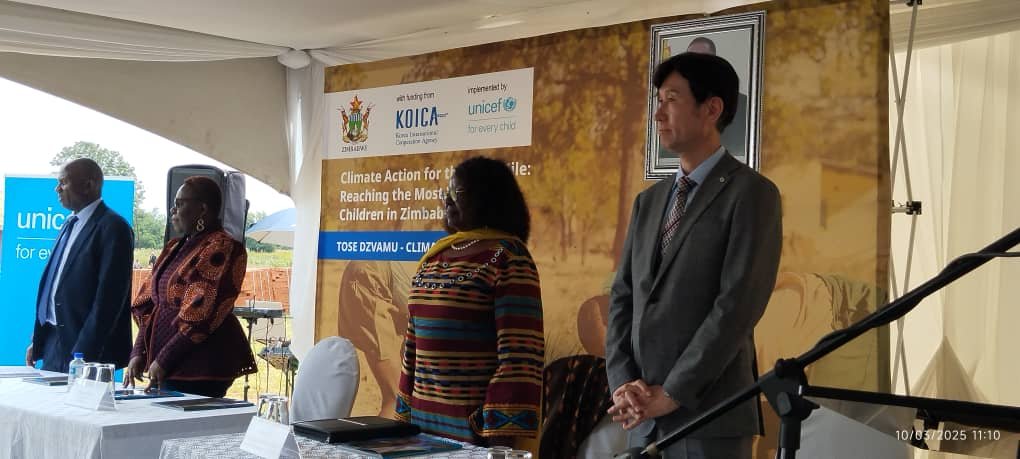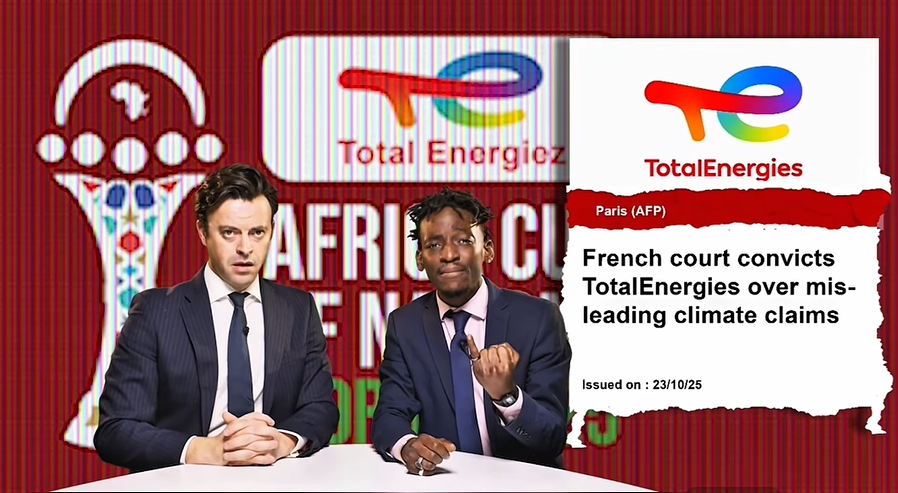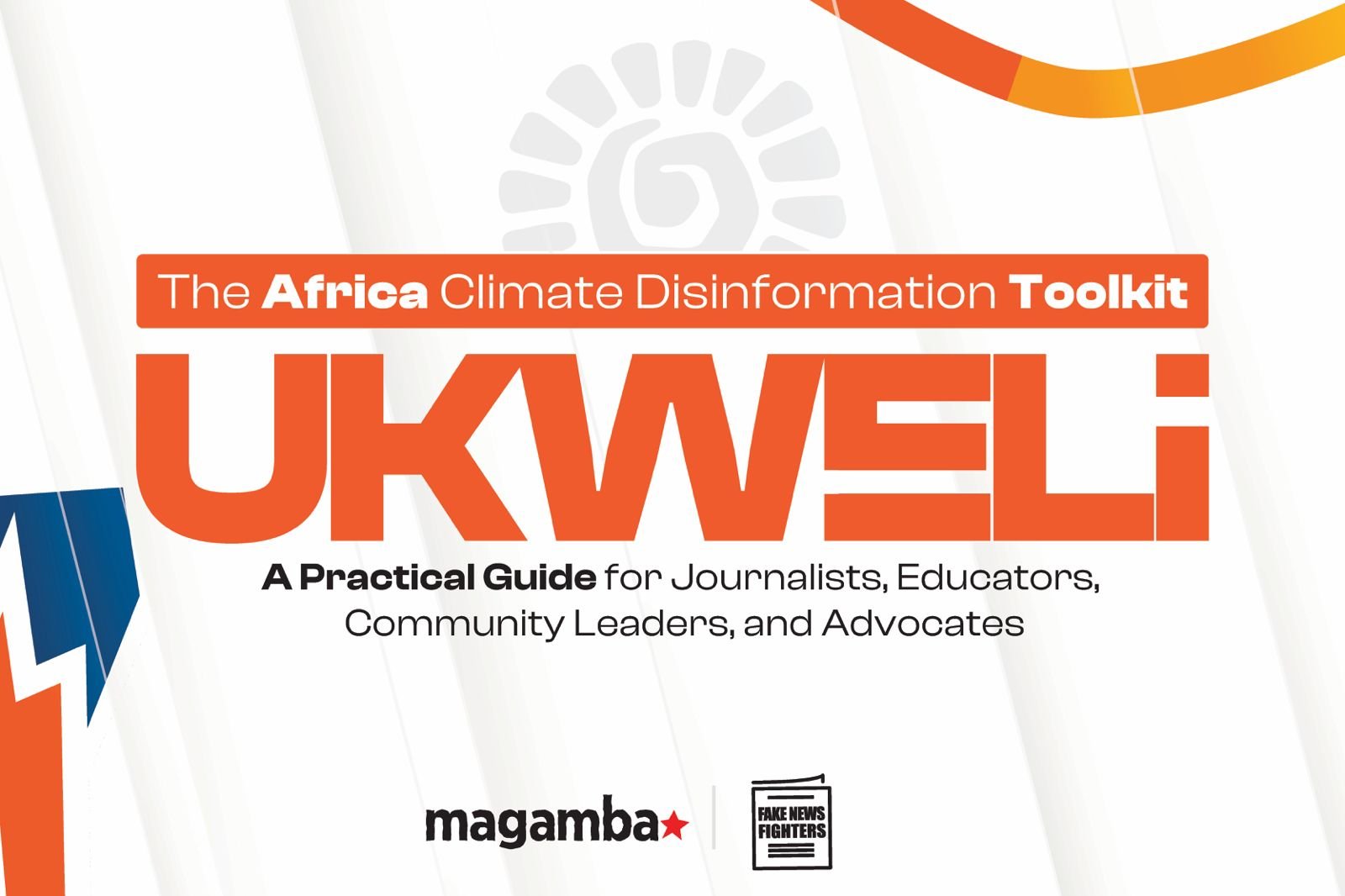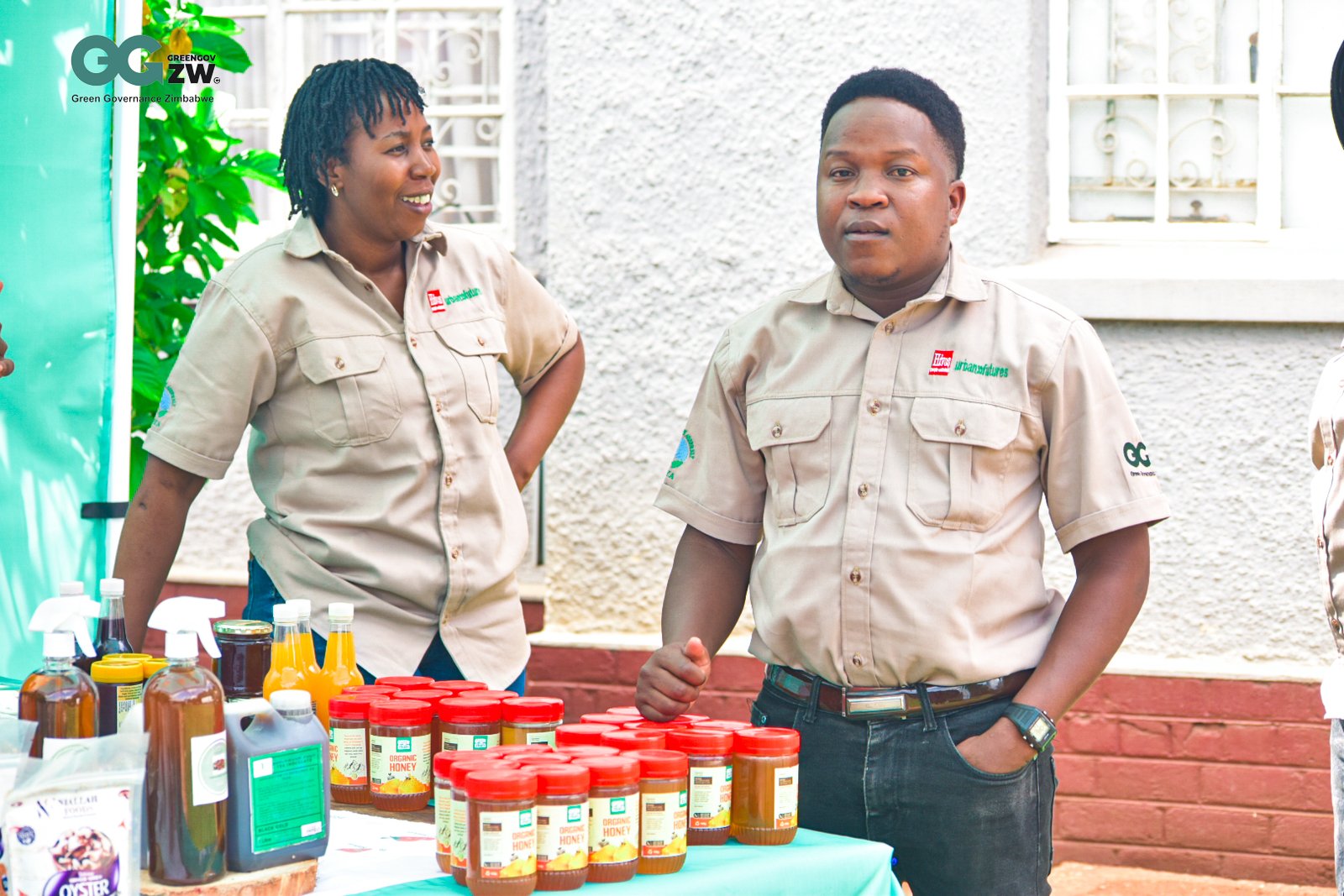The climate crisis is here, and its impact is hitting the hardest where it hurts most: our children. While they are the most vulnerable to the effects of global warming, extreme heat, floods, and food insecurity, they are almost invisible in the global conversation about solutions.
With this in mind a new climate resilience initiative, launched by the Government, UNICEF, and the Korea International Cooperation Agency (KOICA), aims to directly help 30,000 people and reach one million more. The “Climate Action for the Last Mile: Reaching the Most Vulnerable Children in Zimbabwe,” the project was lauched at Kuwadzana High School 3 in Harare and the project targets areas including Harare, Chipinge, Mangwe, and Beitbridge.
It focuses on improving services and infrastructure for vulnerable children and communities affected by climate change.The initiative will enhance access to clean water, sanitation, education, health, nutrition, and child protection services. It also aims to strengthen climate policies and empower children to get involved in decisions that affect their environment and future.
“Climate change is not just an abstract concept, it is a harsh reality that manifests in extreme weather events, prolonged droughts, and erratic rainfall patterns. These changes exacerbate existing vulnerabilities, particularly for our most marginalised populations, our children and vulnerable communities. Children face heightened risks of food insecurity, waterborne diseases, and limited access to education, all of which hinder their potential and future,” said Environment, Climate and Wildlife Minister Dr Sithembiso Nyoni.
Dr. Sithembiso Nyoni emphasized a crucial shift in perspective, recognizing that children are far more than just passive recipients of aid. They are active participants with voices, ideas, and the capacity to contribute meaningfully to decisions that affect their lives.
“It is important to acknowledge that vulnerable populations, including children, are not just passive recipients of aid; they are crucial actors in climate action. Their unique perspectives and innovative ideas can drive solutions that are inclusive and effective.”
The initiative comes as Zimbabwe faces increasing climate risks that threaten children’s access to essential services.The effects of climate change disproportionately impact the most vulnerable, worsening inequalities and exposing children to food insecurity, disease, and disrupted education.
The initiative comes as Zimbabwe deals with growing climate risks that put children’s access to basic services at risk. Climate change affects the most vulnerable the hardest, making inequalities worse and leaving children more exposed to hunger, illness, and interrupted education.
Korean ambassador to Zimbabwe Mr Park Jae Kyung said they have donated US$5 million to aid Zimbabwe in its battle against climate change focusing on vulnerable children who are disproportionately impacted by environmental disasters.
“The Climate Action for the Last Mile project will strengthen education, health, nutrition, child protection and social protection systems, and climate smart Water, Sanitation and Hygiene (WASH). The Korean government is providing five million USD for the people of Zimbabwe through UNICEF for two years (2025-27). The project targets 30,000 direct beneficiaries, and among those, 40% or 12,000 will be children”, Park Jae Kyung.
Ambassador Park highlighted the significance of empowering children to engage actively in climate governance, noting that their involvement is crucial for shaping a sustainable future.
“Children are the least responsible for climate change, yet they bear the greatest burden. By involving them in decision-making processes, we are helping to shape a more inclusive and sustainable future.”
UNICEF Representative Ms. Etona Ekole stated that children are not responsible for climate change, but they suffer the most from its effects.
“It is alarming to note that while children are the least responsible for climate change, they bear its greatest burden. UNICEF’s Children’s Climate Risk Index reminds us that every child on this planet is exposed to at least one climate or environmental hazard each year, with grave consequences for their health, education, and overall well-being.
With 7.1 million people affected, the ripple effects of climate change are leaving these vulnerable communities in a challenging situation, threatening their future and health.
Many children are struggling to stay in school as extreme weather events disrupt classes and make it difficult for families to meet their basic needs.
“Climate-induced disasters are disrupting their education, affecting their health, and limiting their access to clean water, nutrition, and social services. Young children, particularly infants, are especially susceptible to dehydration, heat stress, and respiratory illnesses. Families living in climate-affected areas face increasing food insecurity, and as natural resources become scarce, children’s ability to learn, play, and thrive is compromised. These impacts are not just statistics; they are the daily realities of children across our nation,” she added.
Ms. Etona Ekole stressed the need for everyone to work together to fight climate change.She highlighted that addressing this complex issue requires a united effort from governments, NGOs, communities, and individuals.
“Tackling climate change requires a multi-sectoral approach, one that integrates climate adaptation into education, health, water, sanitation, and social protection systems. The future of our children depends on our ability to build climate-resilient communities, strengthen our policies, and invest in sustainable solutions,” she said.
The Government of Zimbabwe is firmly committed to tackling climate change. Recently, the government shared its Revised Nationally Determined Contributions (NDC), aiming for a 40% reduction in greenhouse gas emissions per person by 2035. This ambitious goal shows the government’s dedication to including the voices of children and youth in climate action, ensuring that no one is left behind. Zimbabwe has its own National Climate Change Adaptation Plan (NAP), which is crucial for integrating climate change into our development plans. This helps make sure our policies are resilient and forward-thinking. Moreover, the Climate Change Management Bill, currently being developed, will serve as an important tool to strengthen our climate action strategies.





